Oily skin in men
introduction
Oily skin in men is most common from puberty and around the age of 25. This is not a disease in the classic sense, but either a symptom or a normal variant. Since this oily complexion is nevertheless perceived as annoying by some people, it can be quite a burden.
Causes of Oily Skin in Men
An oily complexion occurs when the sebum glands in the skin produce too much fat. The fat actually serves to protect the skin from drying out and to give it resistance to external attacks. However, if the sebum glands are overactive, the oily, shiny skin is noticeable. This is often associated with acne during puberty. In most cases, this is due to a change in the hormonal balance. Therefore, other hormone fluctuations can also lead to oily skin. For women, this can be the case, for example, before the start of their monthly menstrual period, after stopping hormonal contraceptives, during pregnancy or after giving birth. If the level of male sex hormones (androgens) is too high, pimples and / or oily skin are common.
Read more on the topic: Oily skin and pimples
Other factors also influence the appearance of the skin and can promote the development of oily skin. These include, for example, climate changes (very dry, very humid or very warm air), stress, malnutrition, alcohol consumption, family predispositions, Parkinson's disease and various hormonal changes, for example due to a malfunction of the ovaries or testicles, as well as the adrenal cortex. Finally, various other diseases can also be the cause of oily skin.
Symptoms of oily skin

Oily skin becomes visible through a coarse, large-pored complexion. The skin shines through the deposited oil film and thus looks greasy. In addition, the skin is prone to blemishes as the sebum glands clog and inflamed pimples can form as a result. Bacteria can multiply well on this soil. The horny layer is often thickened in oily skin. This makes the skin look pale and poorly supplied with blood. Many people with oily skin also develop oily hair quickly as the sebum glands on the scalp can also be overactive.
diagnosis
Oily skin is one Eye diagnosis. Due to the typical appearance of the skin, the diagnosis can be made quickly by a dermatologist. Depending on the age of the person concerned, further examinations may then follow. Occurs in teenagers around puberty Oily skin often occurs as part of acne. If this is severe, the dermatologist can initiate therapy. Smears can also be taken from pimples to identify possible pathogens. If the doctor suspects an illness as the trigger for the blemished skin, a blood test or a hormonal diagnostics respectively. Depending on the findings, further diagnostics and therapy will follow.
Treatment of oily skin in men
The therapy of oily skin, if it is based on an organic disease, is initially based on the therapy of this underlying disease. If there is only the oily complexion without any further disease, there are various options for treating this. If it is mild, simple measures are often sufficient to improve the complexion. In principle, high-fat cosmetics and ointments should be avoided on oily skin. These only make the skin richer in oil. Instead, preference should be given to mild cleansing waters, with which the skin is regularly freed from the excess layer of oil. Care should be taken to ensure that the care product does not contain any harmful additives.
Another option are facial steam baths, for example with added chamomile. The steam has a cleansing and clarifying effect on the complexion and the chamomile prevents the formation of blemishes. In more severe cases, medicinal ointments can also be used, for example with benzoyl peroxide. However, this can lead to dehydration of the skin in the long term, so caution is advised. In addition, it must be ensured during the application that benzoyl peroxide can bleach clothes that come into contact with the cream.
Ultimately, UV radiation can also improve the complexion. However, this should be weighed according to medical advice, as UV radiation also increases the risk of skin cancer. If there is clear evidence of pathogens in skin impurities, antibiotic therapy may also be considered.
Oily skin is often the result of stress, an unhealthy diet and a lack of exercise. Food that is very high in sugar and fat should therefore be reduced and healthy foods should be consumed more. To reduce stress, you should get enough physical activity. Some sufferers also benefit from relaxation techniques, for example through autogenic training or progressive muscle relaxation.
Read more on this topic at: Proper care for oily skin
forecast
Oily skin under the puberty occurs, usually disappears by itself as soon as the hormone balance has regulated. The prognosis is therefore good. A lot through one Lifestyle change with healthy eating can be brought about, skin impurities can usually be combated well in later life.
prophylaxis
Oily skin cannot always be avoided. A certain genetic predisposition and the body's own hormonal balance play a decisive role, so that no universally effective prophylaxis can be recommended.However, there are certain factors that, if observed, can lower the risk of oily skin and blemishes. This includes, for example, a balanced and healthy diet with little industrial sugar, sufficient exercise to reduce stress and adequate fluid intake. The skin should also be cared for with mild detergents. Excessive personal hygiene can do more harm than good to the skin. Bathing too often is therefore not beneficial for healthy skin. In addition, the skin should not be exposed to sunlight for too long in order not to promote premature aging and skin cancer.
You might also be interested in this article: The right skin care for men
Cream against oily skin in men

High-fat creams should not be used on oily skin, as these would only add more oil to the skin. The skin should be cleaned morning and evening with mild cleansing products. A facial toner can then be applied, but it should contain little or no alcohol, so as not to unnecessarily irritate the skin. Then it is advisable to apply a light moisturizing cream that supplies the skin with moisture without making it greasy again. A wide variety of products are available in the drugstore that are suitable for the care of oily skin. If you are unsure or have problematic skin, it can also be advisable to seek advice from trained staff at the pharmacy.
Oily skin on the face
The face is most commonly affected by oily skin. The skin of the face is most exposed to all weather conditions and air pollution and is therefore per se more prone to impurities. Oily skin on the face manifests itself as a shiny film of oil, frequent blackheads and pimples. If possible, the skin should be cleaned twice a day with mild cleansing products and then put on with some moisturizing cream. Face masks for oily skin that are used once a week can also help to improve the complexion in the long term. If general measures do not bring any improvement, it may be useful to see a dermatologist. Under certain circumstances, the skin changes could be the expression of an underlying disease, for example a food intolerance or stress and an unhealthy diet. If you have oily skin with other typical symptoms, Parkinson's disease should also be considered.
Find out more about the topic here: Blackheads - Causes and Treatment


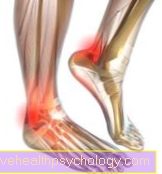

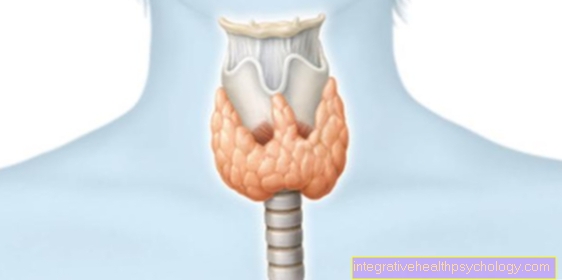

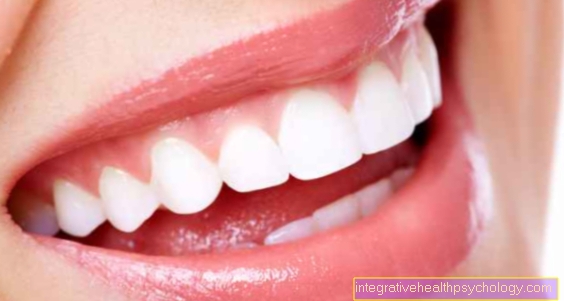
.jpg)
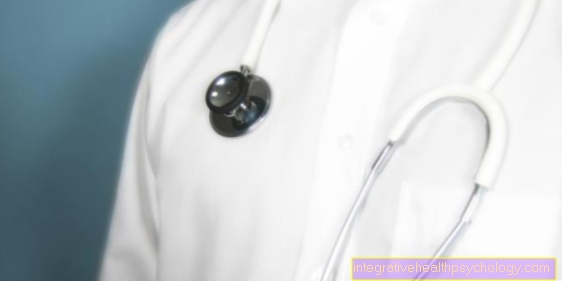
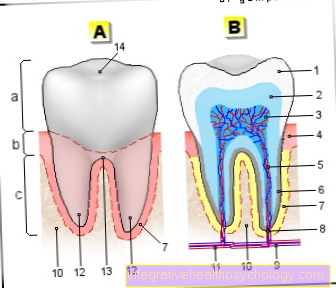










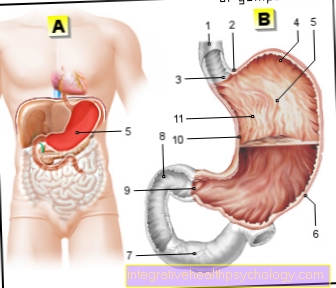







.jpg)
.jpg)